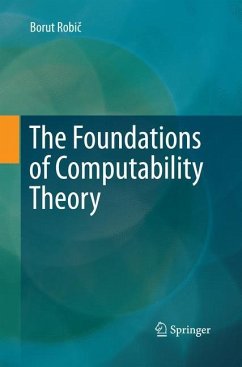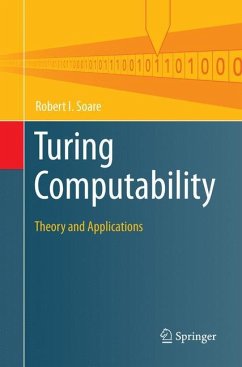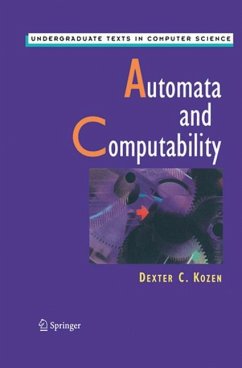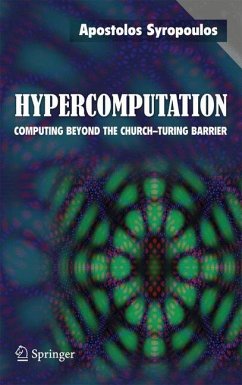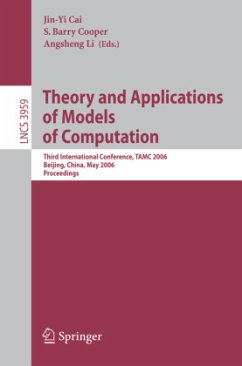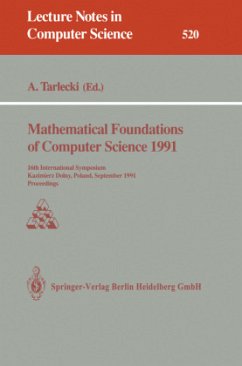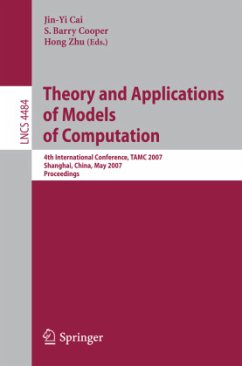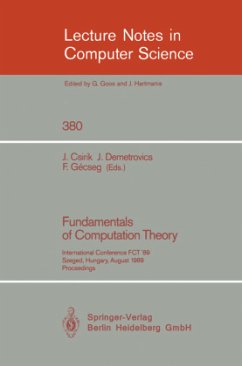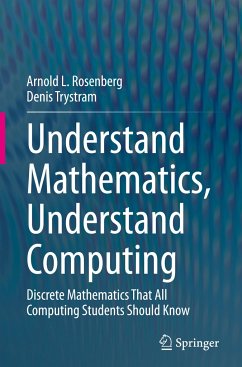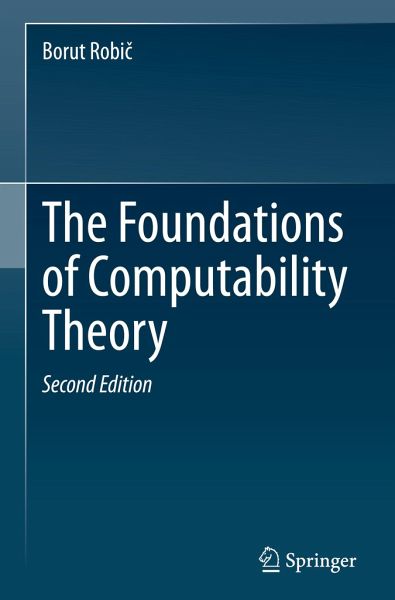
The Foundations of Computability Theory
Versandkostenfrei!
Versandfertig in 6-10 Tagen
68,99 €
inkl. MwSt.
Weitere Ausgaben:

PAYBACK Punkte
34 °P sammeln!
This book offers an original and informative view of the development of fundamental concepts of computability theory. The treatment is put into historical context, emphasizing the motivation for ideas as well as their logical and formal development. In Part I the author introduces computability theory, with chapters on the foundational crisis of mathematics in the early twentieth century, and formalism. In Part II he explains classical computability theory, with chapters on the quest for formalization, the Turing Machine, and early successes such as defining incomputable problems, c.e. (comput...
This book offers an original and informative view of the development of fundamental concepts of computability theory. The treatment is put into historical context, emphasizing the motivation for ideas as well as their logical and formal development. In Part I the author introduces computability theory, with chapters on the foundational crisis of mathematics in the early twentieth century, and formalism. In Part II he explains classical computability theory, with chapters on the quest for formalization, the Turing Machine, and early successes such as defining incomputable problems, c.e. (computably enumerable) sets, and developing methods for proving incomputability. In Part III he explains relative computability, with chapters on computation with external help, degrees of unsolvability, the Turing hierarchy of unsolvability, the class of degrees of unsolvability, c.e. degrees and the priority method, and the arithmetical hierarchy. Finally, in the new Part IV the author revisits thecomputability (Church-Turing) thesis in greater detail. He offers a systematic and detailed account of its origins, evolution, and meaning, he describes more powerful, modern versions of the thesis, and he discusses recent speculative proposals for new computing paradigms such as hypercomputing.
This is a gentle introduction from the origins of computability theory up to current research, and it will be of value as a textbook and guide for advanced undergraduate and graduate students and researchers in the domains of computability theory and theoretical computer science.
This new edition is completely revised, with almost one hundred pages of new material. In particular the author applied more up-to-date, more consistent terminology, and he addressed some notational redundancies and minor errors. He developed a glossary relating to computability theory, expanded the bibliographic references with new entries, and added the new part described above and other new sections.
This is a gentle introduction from the origins of computability theory up to current research, and it will be of value as a textbook and guide for advanced undergraduate and graduate students and researchers in the domains of computability theory and theoretical computer science.
This new edition is completely revised, with almost one hundred pages of new material. In particular the author applied more up-to-date, more consistent terminology, and he addressed some notational redundancies and minor errors. He developed a glossary relating to computability theory, expanded the bibliographic references with new entries, and added the new part described above and other new sections.






